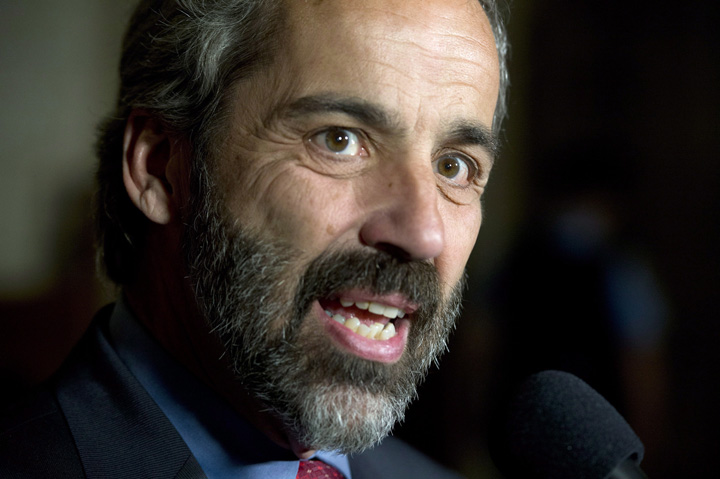MONTREAL – Leaders of Quebec’s sovereignty movement are gearing up for a fight with the federal government over its decision to intervene in a provincial court case challenging a law at the heart of their cause.

The head of the Bloc Quebecois, Daniel Paille, contends the federal justice department is infringing on Quebec’s right to make its own decisions.
The province’s Parti Quebecois government, meanwhile, is planning a news conference for Sunday to lay out its own objections.
Alexandre Cloutier, the PQ’s minister of intergovernmental affairs, said Saturday on Twitter that Ottawa’s actions demanded an “exceptional response.”
The federal government filed a legal intervention last Wednesday in a court challenge that argues a Quebec law outlining the grounds for secession is limited by the Canadian constitution.
What is Bill 99?
Bill 99, passed in the year 2000, declares that the province’s voters and its legislature are the only ones that can decide Quebec’s future on the question of independence.
Under the law, a referendum vote that gets 50 per cent plus one in favour of independence should be considered enough to separate from Canada.
A Quebec English-rights activist launched a challenge shortly after the law was passed, but it’s only now set to be heard by a Quebec superior court.
What is the Clarity Act?
The legislation was introduced by Lucien Bouchard’s Parti Quebecois government in response to the federal Clarity Act, which was brought forward by Jean Chretien’s Liberals.
The Clarity Act, in contrast to Bill 99, stipulates that a Quebec referendum must result in a “clear majority” in favour of secession before beginning any negotiations.
And so, after more than a decade of relative peace on the constitutional front, echoes of 1990s battles are resounding again.
The PQ, hardcore Quebec federalists, and the federal government could soon be scrapping it out in court.
Only this time, the governing party isn’t Liberal, the prime minister is not from Quebec, and the party has little representation in the province.
Federal position
Carl Vallee, a spokesman for Stephen Harper, said in an email he’s certain the PQ government will try to use the case to rehash old quarrels.
He said the prime minister and the federal government’s position on the issue is well known, adding that he won’t comment on specifics because the case is before the courts.
Brent Tyler, the lawyer who first challenged the law 13 years ago, said Saturday the federal government’s recent intervention is “better late than never.”
Tyler filed the motion on behalf of Keith Henderson, a former leader of the old English-language rights Equality Party.
For years, Tyler said, “it was left up to a private citizen to make sure that the constitution was upheld.”
With a trial date to be set on Dec. 19 for a case expected to be heard some time in 2014, Tyler said Ottawa had no choice but to get involved.
The federal government’s intervention, filed last Wednesday, argues that Law 99 “does not and can never provide the legal basis for a unilateral declaration of independence by the government.”
Quebec reaction
In an interview, Paille called the decision by the Harper government to intervene in the case a “breach of democracy.”
He said it should be solely up to the “Quebec nation” to decide whether it wants to leave or remain in Canada.
Cloutier said much of the same thing on Twitter.
Despite the tough talk, support for independence is low and the PQ has only a minority in the legislature.
But there are rumours they will call an election next month and, if so, a battle with Ottawa would be fodder for the campaign trail.
It didn’t work out all that well last time separatists tried to fight this battle.
The Bloc Quebecois had a disappointing election result in 2000 when the Clarity Act was an issue, and Lucien Bouchard cited Quebecers’ indifference to the issue, and the Bloc’s result, when he resigned as premier a few weeks later.



Comments